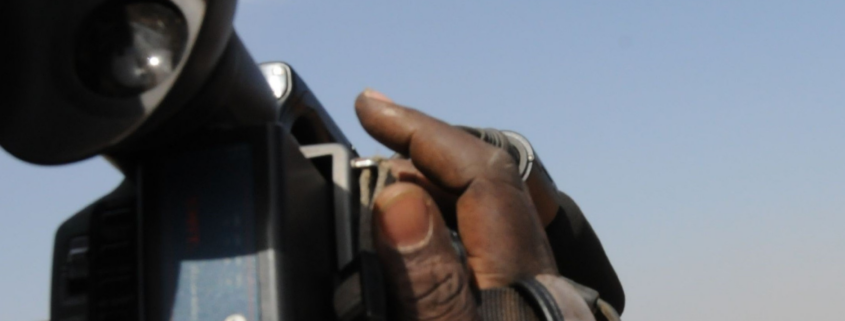This blog by Sean McGovern and Abraham Diing Akoi, is based on a recently published research report on social media and violence. The blog explores the intersection between the use of social media, including WhatsApp, in times of conflict and violence. Using the case of South Sudan, the blog identifies how communities have used WhatsApp in both positive and negative ways during conflict. The blog provides some recommendations on how to mitigate the detrimental effects…
repository
CSRF Research Repository
The CSRF Research Repository aims to support greater contextual knowledge for policy makers, programme managers, and implementers by providing a searchable repository of research, analysis, and resources, and providing periodic updates on new research and analysis.
This report explores the practice of bride prices in South Sudan and its related social, economic, and political implications on gender relations and violent conflict. The report suggests that the bride price appears to contribute to gender-based violence and violent conflict in the country. The report also provides insights on how stakeholders can tackle these challenges linked to the practice of bridge price. Read more here
This article provides a multidimensional report of the persistent farmers-herders conflict in South Sudan, delving into its historical background, root causes, far-reaching consequences, potential prevention/management strategies and recommendations for actors and policymakers in South Sudan.
Focusing on peace in South Sudan, this meta-analysis provides an overview of the literature available on formal peace agreements – their limitation and challenges, local level conflict prevention and resolution mechanisms, and disarmament, demobilisation, and reintegration (DDR) processes in South Sudan. Specifically, it explores the structural limitation and implementation challenges of the formal peace agreements and their legacy, as well as looking particularly at the DDR processes envisaged as parts of these agreements. Finally, it…
The report focuses on the dynamics in Rotriak, which is currently hosting South Sudanese returnee fleeing the conflict in Sudan. Specifically, the report identifies four key challenges in the area, which are compounded by the return and the climate change: these include, its sensitive location, factors of insecurity, concerns over protection and community relationships. Finally, the report provides some conflict sensitive recommendations on how to address these challenges. Read more here
Focusing on gender in South Sudan, this meta-analysis provides an overview of the literature available on gender dynamics with a special attention on women. It looks at their role in politics and peacebuilding, conflict related sexual violence (CRSV) and sexual and gender-based violence (SGBV), and explores the changing roles of women in times of conflict. The analysis concludes with a brief assessment of gendered access to education and its evolution over time.
This report explores how climate change can intersect with conflict in South Sudan. Using case studies of Kapoeta and the Mangala-Bor corridor, the report finds that climatic events, such as drought and flooding, remain key contributors to migration and violence, including gender-based violence. To mitigate the effects of climate change on conflict, the report provides conflict-sensitive recommendations for aid agencies and donors operating in both drought and flood-hit areas across the country.
This report draws from a preliminary dataset on third-party mediation in Sudan and South Sudan (1988-2022) to determine if and how the growing presence of non-Western powers – especially out-of-region ones – indicates their greater involvement in peace processes and mediation. Findings indicate that conflicts in Sudan and South Sudan have been, and remain to this day, primarily a domain of mediation efforts by neighbouring states and regional organisations. While all out-of-region non-Western actors, especially…
Disasters, including disaster-related activities, have been shown to precipitate, intensify, and lengthen violent conflicts, yet disasters have also demonstrated the potential to reduce violent conflict, encourage cooperation, and build peace. Disaster-conflict and disaster-peace literature has sought to establish causal and linear relationships, but research has not explored with the same rigour the causal mechanisms linking these phenomena in long-term processes of social-political change and how they are influenced by human actions and inactions. This research…
This Conflict Series Brief analyses the effects of the recent pandemic-induced oil price shock on three vulnerable, conflict-affected countries. This is done by testing the two competing theories of the resource curse and of the rentier state, each offering a different interpretation of the oil-conflict nexus: The resource curse theory posits that an abundance of natural resources, and in particular oil, raises the probability, frequency, and intensity of conflict. The rentier state theory sees the…

Some Infos
Lorem ipsum dolor sit amet, consectetuer adipiscing elit. Aenean commodo ligula eget dolor.
Pages
- About Our County Profiles
- Blog
- Case Studies Grid
- Central Equatoria
- Conflict Sensitivity Resource Facility South Sudan
- Contact Us
- Contribute a Repository Article
- County Profile HTML links
- County Profiles
- COVID-19 HUB
- Covid-19 information page
- CSRF About Us
- CSRF Helpdesk
- CSRF Helpdesk Form
- CSRF Login
- Dashboard
- Deliverables
- Demo
- Events
- Forgot password
- Guides, Tools and Checklists
- Helpdesk
- Home
- Latest
- Looker Studio
- Subscribe

